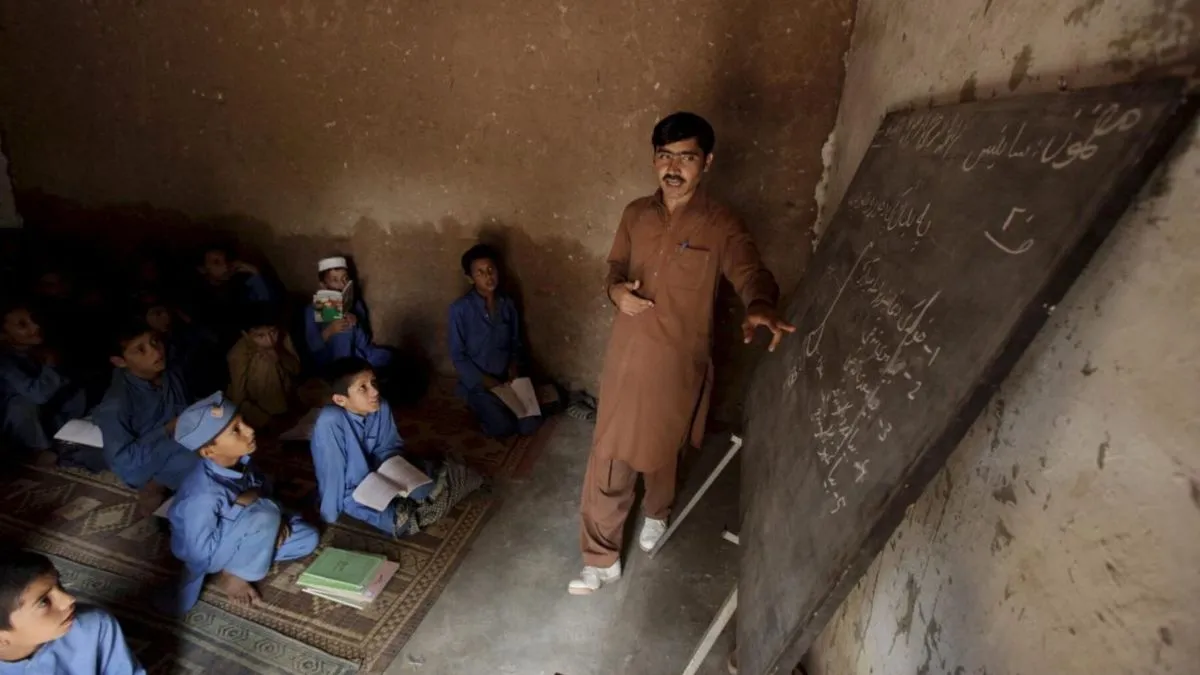- By Shivangi Sharma
- Tue, 19 Aug 2025 10:05 PM (IST)
- Source:JND
A new report by the Institute for Monitoring Peace and Cultural Tolerance in School Education (IMPACT-se) has raised concerns about Pakistan’s national curriculum, claiming it instils intolerance and perpetuates hostility toward India, Israel, and Jews.
The study examined 75 government-approved textbooks from the Punjab, Sindh, and Federal educational boards, covering subjects including Islamic education, history, social sciences, English, and Urdu. According to IMPACT-se, the material consistently presents jihad as both a religious and moral obligation while framing India as “the enemy country.”
The textbooks glorify the two-nation theory, originally articulated by Sir Syed Ahmed Khan and later advanced by Muhammad Ali Jinnah, as a direct rejection of Mahatma Gandhi’s vision of a united India. In this vision, Hindus and India are presented as the historic suppressors of Muslims and thus deserving of Partition and the establishment of Pakistan.
Hinduism is present negatively, defined as a civilisational and religious threat to Pakistan's existence. This image, according to the report, supports an eternal enemy mentality toward India as a unifying aspect of Pakistan's national identity.
ALSO READ: Trump’s ‘Crazy’ Hot Mic Moment With Macron: ‘I Think Putin Wants To Make A Deal For Me’ | VIDEO
Antisemitic Narratives Persist
IMPACT-se also highlighted the recurring negative portrayal of Jews in Pakistani textbooks. One example is a fifth-grade Islamic education book from Sindh, which claims Jews caused suffering to Prophet Isa (Jesus) and his mother. It further accuses Jews of plotting against Jesus to maintain their religious authority.
Such depictions echo medieval antisemitic tropes, particularly those blaming Jews for the crucifixion of Jesus. The report stresses that these narratives are offered without historical context or clarification, leaving young students with a skewed perception of Jewish history and identity.
More broadly, Jewish communities are frequently framed through early Islamic history, particularly accounts of the Prophet Muhammad’s conflicts with Jewish tribes in Medina. The textbooks often portray Jews collectively as treacherous or disloyal, a theme reinforced throughout different grade levels.
Framing Global Politics in Absolute Terms
The report further notes that Pakistan’s rivalries are often framed in stark moral language. India is explicitly called “the enemy country,” while Pakistan’s role in supporting Middle Eastern states against Israel is depicted as an effort to build a unified Muslim front, ignoring the divisions that exist within the Muslim world itself.
IMPACT-se also found that the textbooks reflect “the shifting dynamics following the normalisation agreements between several Arab states and Israel,” presenting these developments as threatening to Muslim unity.
The report concludes that such educational material risks cementing hostility and intolerance among future generations of Pakistanis. By embedding enmity toward India and Israel into the curriculum, and by glorifying jihad as a moral duty, the textbooks risk perpetuating cycles of mistrust and conflict in South Asia and beyond.
